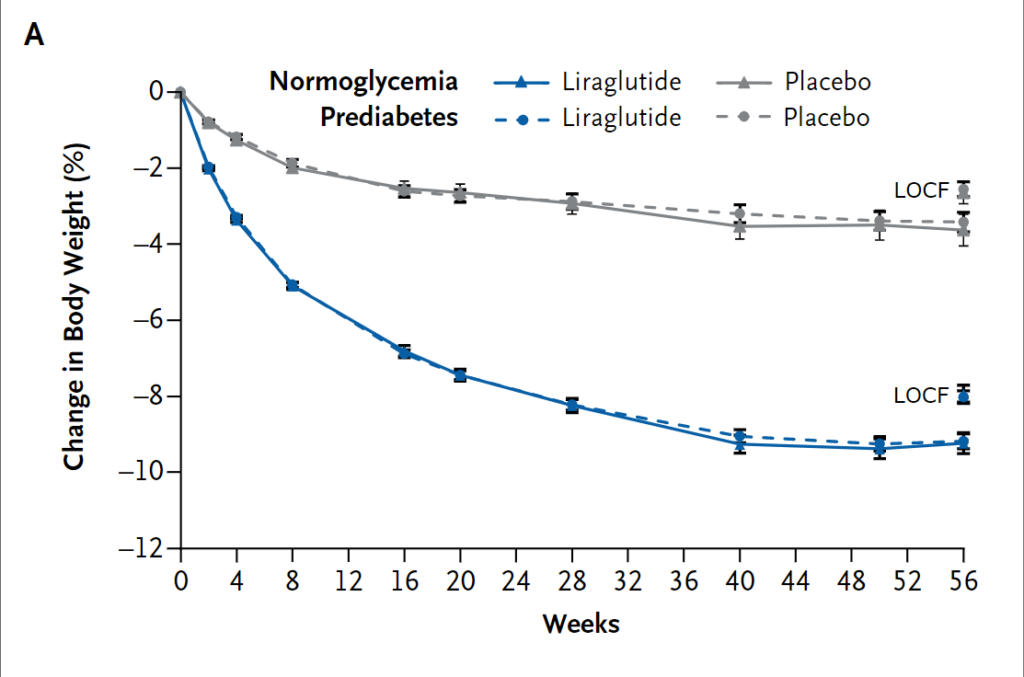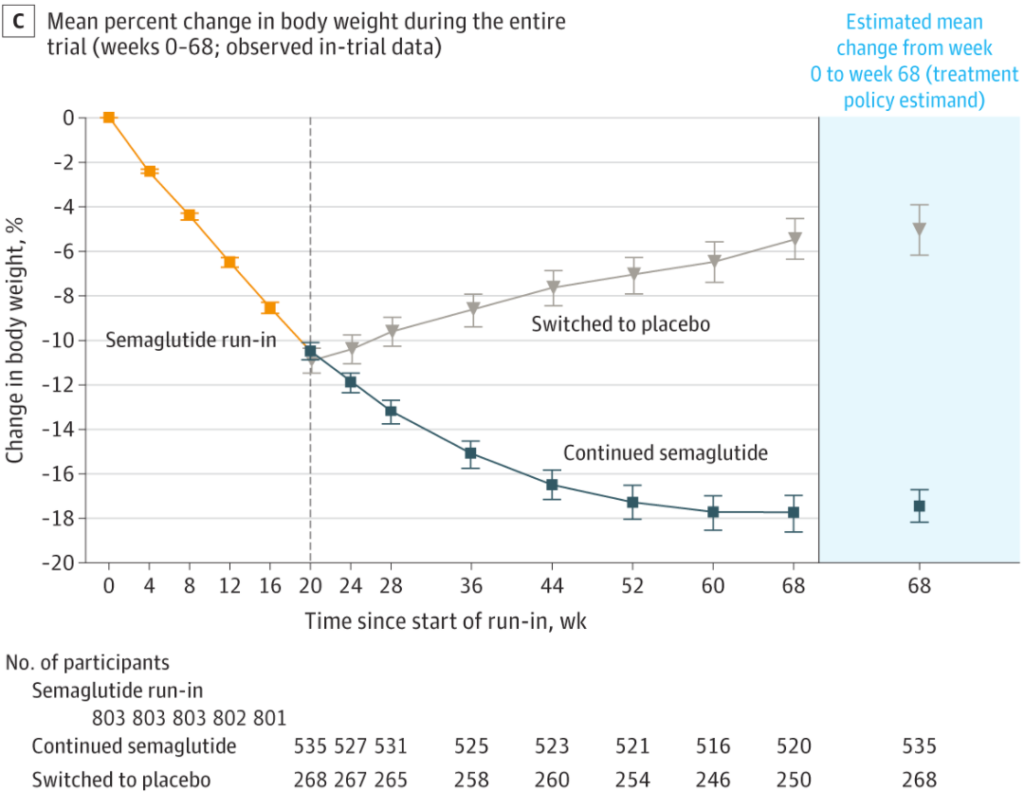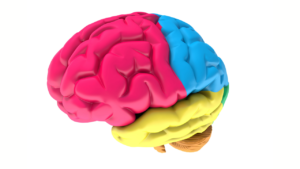(If you want to skip to what to do, which you shouldn’t, here’s part 2!)
Does it feel like your weight-loss medication, such as Saxenda or Ozempic, has stopped working?! Is that really possible? How does that work if you’re supposed to take these meds for life?
I know. WTH? So the short answer is they are still working, but we need to unpack a few things here. Let’s talk about some science!
So when a drug no longer becomes effective or becomes less effective with successive doses, we call it tachyphylaxis. Not anaphylaxis where your throat closes off, and you possibly die, but tachyphylaxis!
A classic example of a drug that can demonstrate tachyphylaxis would be opioids – morphine and the like. After a series of doses or prolonged use, individuals report that they no longer experience the original pain-relieving effects. Their body becomes desensitized, and in order to restore the initial response, they either need more of the drug, or they need to stop the medication for a period of time and allow their body to resensitize. Clearly, you can see how this might lead to problems and concerns surrounding our current opioid crisis!
So I feel like my Saxenda is no longer effective? What the hell is happening?!
 Unfortunately, tachyphylaxis is not what occurs with GLP-1 receptor agonists like Saxenda and Ozempic. These medications do not stop working, but they may SEEM like they are no longer effective in reducing appetite or perhaps your weight-loss progress has stalled, and you might even be gaining some weight back. There might be two reasons for this!
Unfortunately, tachyphylaxis is not what occurs with GLP-1 receptor agonists like Saxenda and Ozempic. These medications do not stop working, but they may SEEM like they are no longer effective in reducing appetite or perhaps your weight-loss progress has stalled, and you might even be gaining some weight back. There might be two reasons for this!
1. Obesity is a chronic and progressive disease.
What that means is that it requires life-long management. Even when a medication is being used, weight regain is a very real possibility due to a plethora of factors such as genetics, the environment etc. Check out the graph below. This is from the SCALE trial that compared Saxenda to lifestyle interventions alone in individuals that were overweight or had obesity. It is pretty clear that the group on Saxenda lost more weight but after ~56 weeks you can see how the weight-loss plateaus and there is even some weight regain. The same occurs in the placebo group as well. This is the nature of obesity being a chronic disease.

Furthermore, when we look at the STEP 4 trial with Wegovy/Ozempic we can see what happens when individuals are taken off a medication.
Check out the figure below.

In this trial they took a group of people and put everyone on Wegovy or semaglutide then at week 20 they created 2 groups and 1 group continued on Wegovy and the other group was switched to a placebo. Both groups continued with lifestyle interventions but the group switched to the placebo gained a great deal of the weight back and the Ozempic group continued to lose weight! So this shows that while it may seem like your medication is no longer working but it is actually doing more than what you think to help manage your weight.
Now on to reason #2.
In practice and/or on social media, I find that when people say their weight-loss medication is no longer working, they talk about how they no longer feel a decrease in appetite or suddenly their hunger and cravings are back with a vengeance.
2. A SIDE EFFECT of Saxenda or Ozempic has worn off.
Simply put, your body is now used to the medication. What do I mean by this?! You see, the main side effects with GLP-1 RAs are GI (gastrointestinal) in nature – that is because the GLP-1 hormone slows down the process of gastric emptying or how quickly food moves from your stomach to your small intestine. So when you first start these medications, the main thing you feel decreasing your appetite and food-seeking behaviour is this SIDE EFFECT. Food is sitting in your stomach for longer, so you feel fuller more quickly, and you might even experience some nausea and heartburn if you do eat.
However, this is what we call a transient side effect. Once your body stabilizes on the medication, the process of gastric emptying speeds up again. So food is no longer hanging out in your stomach as long and that decrease in appetite you felt initially starts to subside!
Sounds like the drug is becoming less effective to me?
 Well, not quite. You see, the way these drugs actually work in managing your weight is not via your stomach and having food sit there for longer. Instead, they work in the mesolimbic reward centre of the brain and decrease your wanting for food and food-seeking behaviours!
Well, not quite. You see, the way these drugs actually work in managing your weight is not via your stomach and having food sit there for longer. Instead, they work in the mesolimbic reward centre of the brain and decrease your wanting for food and food-seeking behaviours!
The problem that I find many people run into is we give these medications to individuals who don’t always have the best relationship with food. In fact, they have likely been fighting to reduce their calorie intake as low as possible for pretty much their entire lives in an attempt to lose weight. Then, suddenly, they are given a drug with a side effect that allows them to fulfill this goal very efficiently, and many people are able to reduce how much they are eating drastically. In some cases, they will nearly stop eating altogether. Then, to add more fuel to the fire, they see a relatively rapid and easy weight-loss, reinforcing the idea that they need to keep their calories as low as possible.
Now initially, everything seems fine and manageable. Appetite is decreased, and they are finally losing weight. The side effect of these medications is working away, and everyone is skipping down the Golden Brick Road. However, in the background, biology is getting to work. As the side effect starts to dissipate, you might notice a minor increase in hunger, but you resist it and see a little more weight-loss. Now your hunger and thoughts around food are becoming more apparent. What seems like almost overnight, your hunger and appetite return with a vengeance. Suddenly you have crushed a large pizza and have just put in an order for Chinese food while raiding your pantry for anything to tide you over until Skip the Dishes shows up for the second time today! You feel like you have lost control and nothing you do seems to curb your cravings, and the thought of food preoccupies your every waking moment. (This may or may not be a bit of an exaggeration.) You are still taking the medication – doing your daily or weekly injections.
So what gives?
 Biology is what gives! GLP-1 is a satiety hormone; it is one of many. No matter how much of it we are injecting via these medications, it is only so powerful in overriding your biological mechanisms. The main priority of your body and brain is survival – keep YOU, the being, alive at all costs possible. When you don’t properly nourish your body and lose weight, your body and brain assume the zombie apocalypse has finally happened! Food is scarce, and we need to start figuring sh*t out until a shirtless Will Smith shows up to save us! In this case, your body is going to slow down your metabolism, send your appetite hormone ghrelin through the roof, and subsequently increase your appetite and food-seeking behaviour to push you to go find food NOW! While you were experiencing the side effect of slowed gastric emptying, you were able to keep biology at bay. But, once that side effect subsides, biology takes over, and biology always WINS!
Biology is what gives! GLP-1 is a satiety hormone; it is one of many. No matter how much of it we are injecting via these medications, it is only so powerful in overriding your biological mechanisms. The main priority of your body and brain is survival – keep YOU, the being, alive at all costs possible. When you don’t properly nourish your body and lose weight, your body and brain assume the zombie apocalypse has finally happened! Food is scarce, and we need to start figuring sh*t out until a shirtless Will Smith shows up to save us! In this case, your body is going to slow down your metabolism, send your appetite hormone ghrelin through the roof, and subsequently increase your appetite and food-seeking behaviour to push you to go find food NOW! While you were experiencing the side effect of slowed gastric emptying, you were able to keep biology at bay. But, once that side effect subsides, biology takes over, and biology always WINS!
Well, a shirtless Will Smith still hasn’t shown up, so is there anything we can do to mitigate this?! Of course, there is! However, I am going to be a total d*nk and leave you on a cliffhanger!
Sorry, not sorry but stay tuned!
Until next time my friends, remember – BIOLOGY ALWAYS WINS!
– Dr. Dan
(Just kidding – here’s part 2!)
References:
- Pi-Sunyer, X. et al. A Randomized, Controlled Trial of 3.0 mg of Liraglutide in Weight Management. N. Engl. J. Med. 373, 11–22 (2015).
- Rubino, D. et al. Effect of Continued Weekly Subcutaneous Semaglutide vs Placebo on Weight Loss Maintenance in Adults With Overweight or Obesity. JAMA (2021) doi:10.1001/jama.2021.3224.






